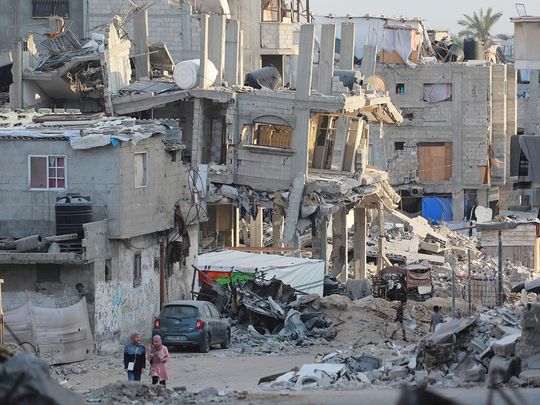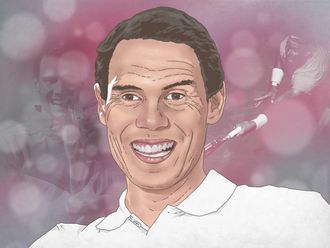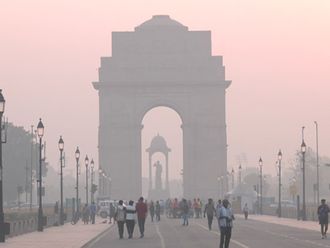
You would need to be an outright optimist or gifted with self-deception to argue, as countless media pundits did after the death of Hamas leader Yahya Sinwar, that with the man out of the way, the equation in the Gaza War has fundamentally shifted. This perspective rests on a simplistic assumption—that the fate of a single leader determines the trajectory of an entire national struggle.
In this case, that struggle has persisted for well over a century, if we consider the 1917 Balfour Declaration as the starting point. It is naïve to think that the removal of one figure could alter the dynamics of a conflict so deeply rooted in history.
Now, I say, extravagant language aside, that long struggle is sure to continue uninterrupted till its inevitable conclusion on a note of grace, a time when the accounts between Palestinians and their occupiers are balanced and they are no longer subjected under occupation, as they have been all these unendurably long decades, to the murderousness and caprice of the inhuman.
Look, at a seminal level of relating to it, the war in Gaza is but an extension of this 100-year-long struggle between Zionism, a European settler movement that had supped its fill of late 19th-century colonial values before it arrived in Palestine, and the Palestinian people.
Grown up with their own skin
In that struggle, so many, many Palestinians have been killed, not just against this movement but against its British backer, patriots whose exploits are etched in the collective consciousness of the people of Palestine.
No Palestinian child in our time can be said to be unfamiliar with the lore of that struggle, including, say, as a case in point, the day on June 17, 1930, when three Palestinian insurgents, young man in their twenties, Fuad Hijazi, Ala’a Zeer and Muhammed Khalil, were hanged together by the British Mandate Authority in the courtyard of Acre Prison, or unfamiliar with the last words the three kids uttered before they took their last breath.
They each had said, each in his own way, in an echo of Nathan Hale’s own last words (“I regret that I have only one life to give my country”) that if his death were to contribute to the liberation of Palestine, he then shall be lowered in peace into his grave. Since then, generations of Palestinians have grown up with the ethos rebellious spirit like they have grown up with their own skin.
And, yes, consider this: After these folks’ funeral, which was attended by thousands of mourners from all over Palestine, where men hollered revolutionary slogans and women ululated defiantly, the ranks of the insurgency swelled considerably.
Will Palestininans, somewhere along the line, you ask, feel defeated? I for one — a Palestinian whose people’s struggle has engaged his consciousness from childhood to ripe old age — don’t see that written either in the stars, in tea leaves or in commonsense.
So, where do we go from here?
To the outside world, the Palestinian people appear, after a century of struggle, to have gone from here to nowhere, having failed to realise their dream of becoming a free people living in a sovereign nation, effectively a people doomed, like a frustrated Sisyphous, to push their rock up the mountain, only to see it roll back each time they reached the top.
That’s what that same world told, among others, the people of Ireland, India, Vietnam, Algeria and South Africa, peoples who found themselves having to confront the many pathologies associated with colonialism, pathologies similar in their vengefulness to those evinced by the twisted mind of Zionism.
Yet, perceptions in that outside world, including that part of it we call the United States, have begun to change. If, for one, Americans have finally come round to empathising with the central motto that anchors the Palestinian people’s national liberation movement, namely that it is preferable to die than to live with an occupier’s boot over your neck, it is because the motto hits a chord in their own historical sensibility, evocative of the time when Patrick Henry, Founding Father, orator and revolutionary, took to the podium at the Virginia Convention in March 1775, and hollered at his fellow conventioneers: “Give me liberty or give me death”.
Occupied Palestinians are denied any semblance of liberty and diaspora Palestinians — like this columnist — are denied even a handful of earth from the old sod under which they can be buried in the world of their fathers.
The question here is this: Do Palestinians feel, in their mind, defeated? Forget about it!
— Fawaz Turki is a noted academic, journalist and author based in Washington DC. He is the author of The Disinherited: Journal of a Palestinian Exile









